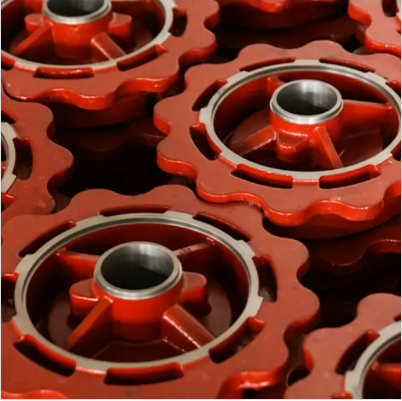Mobile:+86-311-808-126-83
Email:info@ydcastings.com
Copper Impellers for Enhanced Performance and Efficiency in Fluid Dynamics Applications
The Role of Copper Impellers in Modern Engineering
In the world of engineering, materials play a crucial role in shaping the performance and efficiency of machinery. Among these materials, copper has garnered attention for its unique properties, particularly in the design and manufacturing of impellers. Copper impellers have become an essential component in various applications, particularly in pumps and turbines, due to their superior conductivity, strength, and resistance to corrosion.
One of the most significant advantages of copper impellers is their excellent thermal and electrical conductivity. This property makes copper an ideal choice for applications where heat dissipation is crucial. In hydraulic pump systems, for instance, copper impellers can effectively manage temperature fluctuations, thus enhancing the longevity and reliability of the components. This is especially important in high-performance environments where overheating can lead to catastrophic failures.
Another key benefit of copper impellers is their corrosion resistance. Unlike many other metals, copper naturally develops a protective patina when exposed to water and air, which helps to prevent further deterioration. This characteristic is particularly beneficial in marine and chemical processing applications where impellers are frequently subjected to harsh environments and corrosive substances. By utilizing copper impellers, engineers can significantly reduce maintenance costs and downtime associated with corrosion-related failures.
copper impeller

Mechanical strength is also a pivotal aspect of copper impellers. Copper alloys, particularly brass and bronze, are frequently used in impeller manufacturing due to their enhanced mechanical properties. These alloys provide the necessary strength to withstand the mechanical stresses imposed during operation. The robustness of copper impellers allows them to operate effectively in high-load situations without compromising performance.
Additionally, the malleability of copper enables it to be easily shaped into complex designs that enhance fluid dynamics. Engineers can create intricate impeller geometries that optimize flow patterns, leading to increased efficiency and reduced energy consumption. This capability is particularly valuable in the design of centrifugal pumps, where the shape of the impeller directly affects the pump's performance.
The use of copper impellers aligns with the growing trend towards sustainable engineering practices. By improving the efficiency of pumps and turbines, these impellers can contribute to lower energy consumption, which is vital in reducing the carbon footprint of industries. As companies increasingly prioritize sustainability, the demand for efficient materials like copper is likely to rise.
In summary, copper impellers are a vital element in modern engineering, offering a combination of thermal conductivity, corrosion resistance, mechanical strength, and design versatility. Their application across various industries underscores the importance of selecting the right materials to enhance the performance and efficiency of machinery. As technology continues to evolve, the role of copper impellers is set to grow, paving the way for advancements in engineering and a more sustainable future.
-
Why Should You Invest in Superior Pump Castings for Your Equipment?NewsJun.09,2025
-
Unlock Performance Potential with Stainless Impellers and Aluminum End CapsNewsJun.09,2025
-
Revolutionize Your Machinery with Superior Cast Iron and Aluminum ComponentsNewsJun.09,2025
-
Revolutionize Fluid Dynamics with Premium Pump ComponentsNewsJun.09,2025
-
Optimizing Industrial Systems with Essential Valve ComponentsNewsJun.09,2025
-
Elevate Grid Efficiency with High-Precision Power CastingsNewsJun.09,2025











